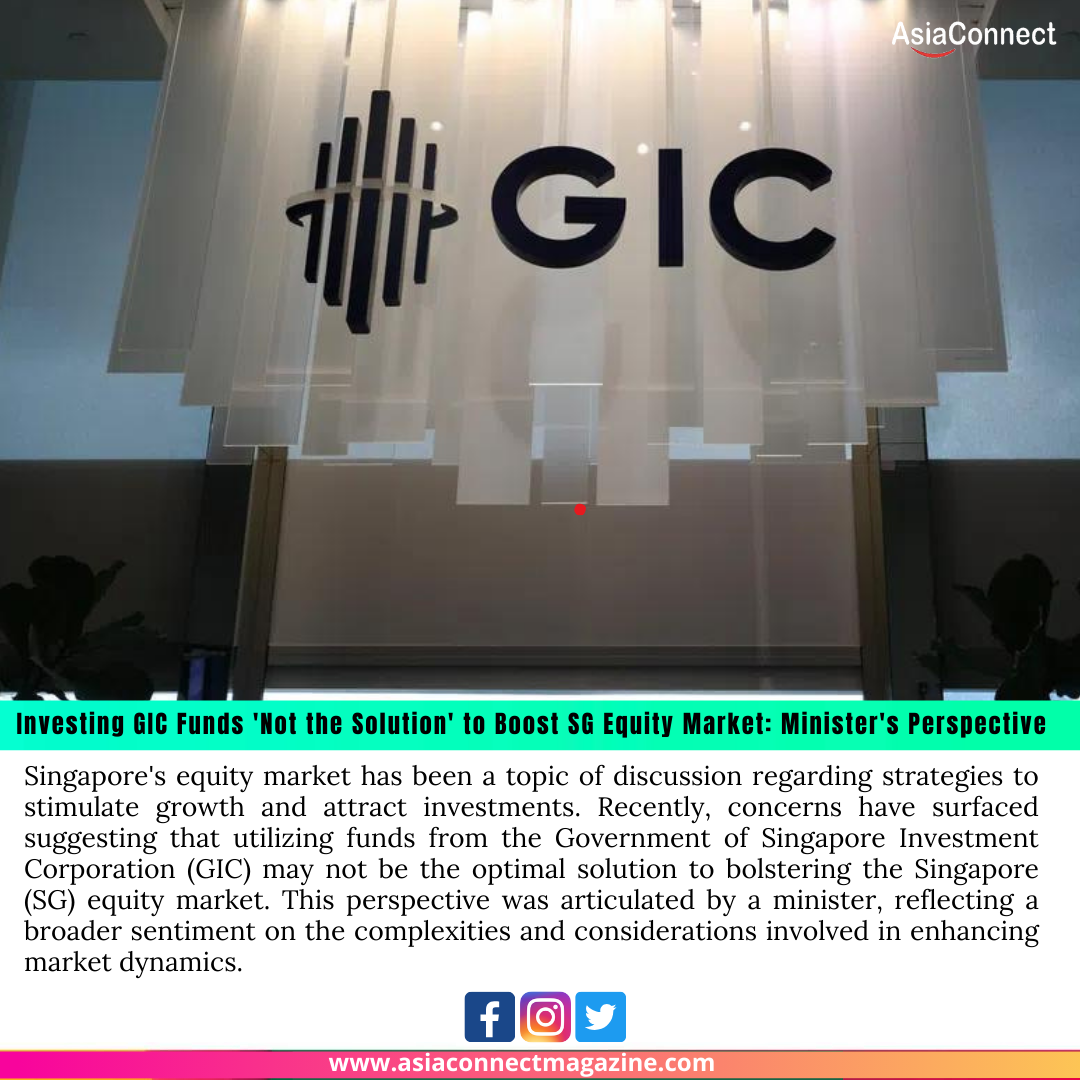Singapore’s equity market has been a topic of discussion regarding strategies to stimulate growth and attract investments. Recently, concerns have surfaced suggesting that utilizing funds from the Government of Singapore Investment Corporation (GIC) may not be the optimal solution to bolstering the Singapore (SG) equity market. This perspective was articulated by a minister, reflecting a broader sentiment on the complexities and considerations involved in enhancing market dynamics.
Current Market Landscape
The SG equity market is recognized for its stability and resilience, underpinned by a robust regulatory framework and strategic positioning in the global financial ecosystem. However, challenges such as global economic uncertainties, evolving investor preferences, and competition from regional markets necessitate proactive measures to sustain and enhance market vibrancy.
Role of GIC Funds
The Government of Singapore Investment Corporation (GIC) plays a pivotal role as a sovereign wealth fund managing Singapore’s reserves. GIC’s investments are typically diversified globally across asset classes, including equities, bonds, real estate, and infrastructure. While GIC’s investments contribute to Singapore’s economic stability and long-term financial security, the allocation of these funds specifically to stimulate the SG equity market requires careful consideration.
Ministerial Perspective
According to recent statements by a minister, leveraging GIC funds solely to boost the SG equity market may not offer a sustainable solution. The minister highlighted several factors contributing to this perspective:
Diversified Investment Strategy: GIC’s mandate includes a diversified global investment strategy aimed at optimizing returns while managing risks. Redirecting significant portions of GIC funds towards local equities could potentially undermine this diversified approach and increase exposure to regional economic fluctuations.
Market Dynamics: Enhancing the SG equity market’s attractiveness involves addressing structural issues such as liquidity, market depth, and investor confidence. While GIC’s investments contribute to overall market liquidity indirectly, targeted interventions focused solely on equity investments may not address underlying market challenges comprehensively.
Investor Confidence: Market participants, including institutional investors and retail stakeholders, prioritize transparency, governance, and regulatory stability when evaluating investment opportunities. Improving these factors alongside targeted policy initiatives is crucial for fostering sustainable growth and investor confidence in the SG equity market.
Long-Term Sustainability: Sustainable growth in the SG equity market requires a multifaceted approach encompassing regulatory enhancements, market infrastructure development, and investor education. While GIC’s role in supporting broader economic stability is acknowledged, sustainable market development hinges on holistic strategies beyond immediate financial injections.
Alternative Strategies
Instead of relying solely on GIC funds, stakeholders advocate for collaborative efforts involving public-private partnerships, regulatory reforms, and initiatives to enhance market transparency and liquidity. These strategies aim to cultivate a conducive environment for domestic and international investors, thereby strengthening the SG equity market’s competitiveness and attractiveness.
Conclusion
In conclusion, while the Government of Singapore Investment Corporation (GIC) plays a pivotal role in managing Singapore’s financial reserves and supporting economic stability, directing its funds exclusively towards boosting the SG equity market may not present a viable long-term solution. A ministerial perspective emphasizes the importance of a balanced approach encompassing regulatory enhancements, market infrastructure investments, and investor confidence-building measures. By addressing these foundational aspects comprehensively, Singapore can position its equity market for sustained growth, resilience, and global competitiveness in the evolving financial landscape.





